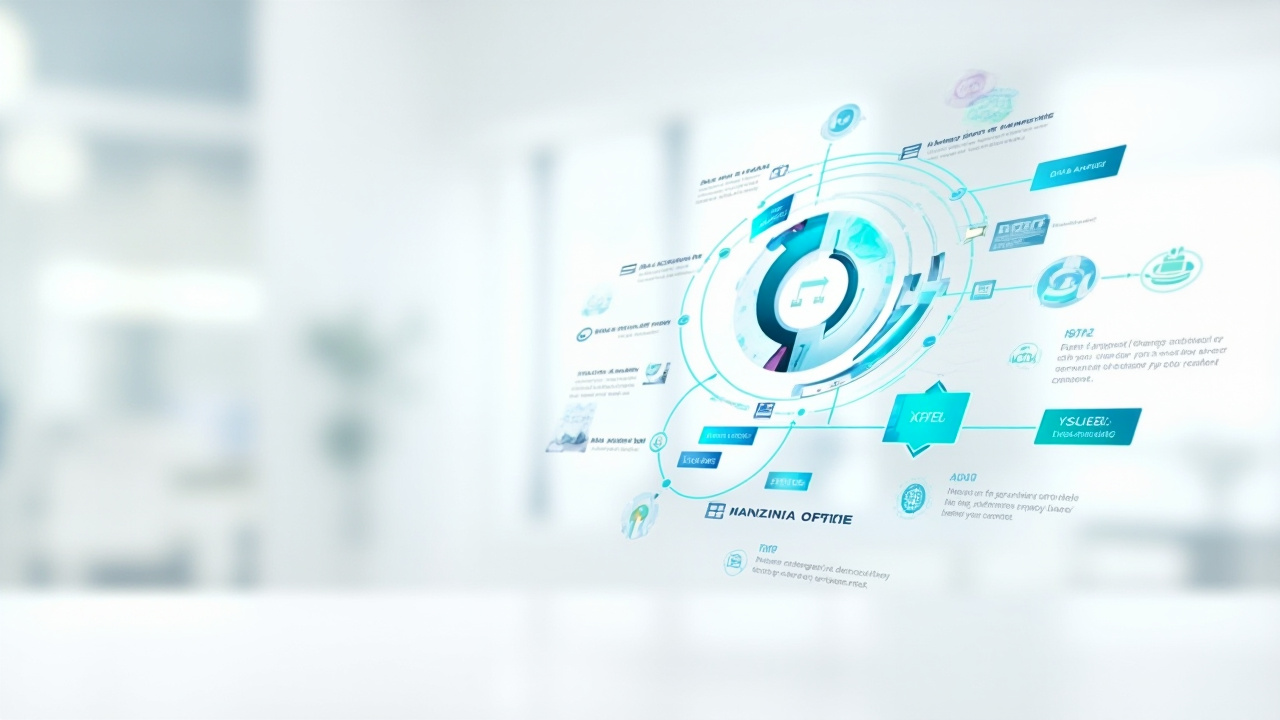In an era where technology continuously reshapes the way businesses operate, the role of AI in B2B marketing has emerged as a game-changer. Companies are no longer relying solely on traditional marketing strategies; instead, they are leveraging AI to enhance efficiency, precision, and personalization in their marketing efforts. This shift is not just a trend but a necessity in today’s fast-paced, data-driven world. But why is AI so pivotal in B2B marketing, and how can businesses harness its full potential?
The integration of AI into B2B marketing strategies addresses several pain points that marketers have faced for years. From managing vast amounts of data to predicting customer behavior and personalizing communication, AI provides solutions that are both innovative and effective. This transformation is not just about adopting new tools but about rethinking how marketing objectives are achieved.
In this article, we will delve into the various ways AI is revolutionizing B2B marketing, providing insights, practical applications, and exploring the tools that are leading the charge. Among these tools, GenQE stands out as an AI-powered platform that, while primarily focused on software quality engineering, exemplifies the broader capabilities of AI-driven solutions. By the end of this comprehensive exploration, you’ll understand how AI can be a pivotal factor in your B2B marketing success.
The Evolution of B2B Marketing: From Traditional to AI-Driven

The journey from traditional marketing to AI-driven strategies in B2B is marked by significant shifts in how businesses engage with their audiences. Traditional methods relied heavily on broad, generalized approaches such as mass mailings and cold calls. While these methods had their time and place, they often lacked the precision and personalization that modern consumers demand.
The Limitations of Traditional Marketing
Traditional marketing methods, though foundational, often fell short in several areas. Reaching the right audience was more about casting a wide net rather than using a targeted spear. This approach frequently led to wasted resources and missed opportunities. Additionally, measuring the success of these campaigns was often difficult, with metrics that didn’t provide the granular insights needed to refine strategies.
“The evolution from traditional to AI-driven marketing is not just a technological upgrade; it’s a strategic necessity for staying competitive.”
The Rise of Data-Driven Decision Making
As businesses began to recognize the value of data, the foundation was laid for AI’s entrance into marketing. The ability to collect, analyze, and act on data transformed marketing strategies. Companies started to realize the importance of data-driven decision making, allowing for more informed strategies that could adapt to the ever-changing market dynamics.
With the advent of AI, this analysis became more sophisticated. AI algorithms can process vast amounts of data at unprecedented speeds, delivering insights that are not only accurate but also actionable. This capability allows marketers to understand their audience at a deeper level, tailoring messages and strategies that resonate more effectively.
AI: The Game-Changer in B2B Marketing
AI’s ability to process and analyze data is just the beginning. It also enables predictive analytics, which can forecast trends and customer behavior with remarkable accuracy. This foresight allows businesses to stay ahead of the curve, anticipating customer needs and adjusting their strategies proactively.
Furthermore, AI enhances personalization, one of the most critical aspects of modern marketing. By understanding individual customer preferences and behaviors, AI systems can tailor communications and offers to each customer, improving engagement and conversion rates.
Enhanced Customer Insights: The AI Advantage

Understanding your customer is the cornerstone of effective marketing, and AI brings unprecedented depth to this understanding. By analyzing customer interactions, behaviors, and feedback, AI provides insights that were previously unattainable.
Deep Dive into Customer Behavior
AI technologies excel at analyzing customer behavior across multiple channels. Whether it’s tracking website interactions, social media engagement, or purchase history, AI synthesizes this data into a cohesive picture of customer preferences and habits.
“AI doesn’t just collect data; it turns it into actionable insights that drive strategic decisions.”
These insights allow marketers to create highly targeted campaigns that speak directly to the needs and desires of their audience. For instance, a company might discover that a particular segment of their audience responds better to email campaigns than social media. With this knowledge, they can allocate resources more effectively, enhancing their overall marketing efficiency.
Predictive Analytics: Anticipating Customer Needs
Predictive analytics is one of AI’s most powerful tools in B2B marketing. By identifying patterns in historical data, AI can forecast future customer behavior. This capability is invaluable for developing long-term strategies and staying ahead of competitors.
For example, if AI analysis reveals that a significant portion of a company’s customers are likely to upgrade their service within the next quarter, the marketing team can proactively create campaigns targeted at this segment, potentially increasing conversion rates and customer satisfaction.
Personalization at Scale
Personalization has become a hallmark of successful marketing strategies, and AI makes it possible to achieve personalization at scale. By using AI, marketers can deliver personalized content and offers to thousands of customers simultaneously, each tailored to the individual’s preferences and behavior.
The result is a marketing approach that feels personal and relevant, fostering stronger relationships between businesses and their clients. This level of personalization was unimaginable with traditional marketing methods, but AI makes it both feasible and practical.
Automation and Efficiency: Streamlining Marketing Processes

AI doesn’t just enhance the strategic aspects of marketing; it also revolutionizes the operational side, introducing automation and efficiency that were previously unattainable.
Automating Routine Tasks
One of the most immediate benefits of AI in B2B marketing is the automation of routine tasks. From scheduling social media posts to managing email campaigns, AI systems can handle these tasks efficiently, freeing up valuable time for marketing teams to focus on more strategic initiatives.
“Automation powered by AI transforms marketing teams from task managers to strategic thinkers.”
This shift not only increases productivity but also enables marketers to dedicate more time to creative tasks that require human insight and innovation. The result is a more agile and responsive marketing team capable of adapting to changes in the market landscape.
Enhancing Campaign Management
AI tools excel at managing and optimizing marketing campaigns. By continuously analyzing performance data, AI can adjust campaigns in real-time to maximize results. This dynamic approach ensures that marketing efforts are always aligned with current conditions and objectives.
For example, if an AI system detects that a particular ad is underperforming, it can automatically adjust the targeting parameters or suggest improvements to the content. This level of agility is crucial in a competitive market where timing and relevance are everything.
Integrating GenQE: A Case Study in Efficiency
While GenQE is primarily known for its software quality engineering capabilities, its approach to AI-driven efficiency offers valuable lessons for marketing processes. By integrating AI to automate test generation and execution, GenQE reduces manual effort and accelerates development cycles. This same principle applies to marketing, where AI can streamline processes, reduce costs, and improve outcomes.
Content Creation and Curation: The AI Impact

Creating compelling content is a cornerstone of effective marketing, and AI has made significant strides in both creation and curation.
AI-Driven Content Creation
AI tools are now capable of generating content that is both relevant and engaging. By analyzing data on audience preferences and trends, AI can produce content that resonates with target audiences. This capability is particularly valuable for B2B marketers who need to produce a high volume of content across various platforms.
“AI-driven content creation allows marketers to scale their efforts without compromising quality or relevance.”
These AI tools can generate everything from blog posts to social media updates, ensuring that content remains fresh and aligned with current marketing strategies. Furthermore, AI can assist in optimizing content for SEO, ensuring that it reaches the widest possible audience.
Content Curation: Delivering the Right Message
In addition to creation, AI excels at content curation. By analyzing a brand’s existing content library and audience preferences, AI can recommend the most relevant content for distribution. This capability ensures that the right message reaches the right audience at the right time.
For example, if a company’s AI analysis indicates that a particular white paper is highly relevant to a segment of their audience, the marketing team can prioritize its distribution, maximizing engagement and impact.
The Role of GenQE in Content Optimization
While GenQE is not a content creation tool, its AI-driven approach to optimizing processes can be applied to content marketing. By using AI to analyze which types of content perform best and why, marketers can refine their strategies to focus on high-impact content that drives results.
Enhancing Lead Generation and Nurturing with AI

Lead generation and nurturing are critical components of B2B marketing, and AI brings new capabilities to these processes.
Intelligent Lead Scoring
AI enhances lead generation by providing intelligent lead scoring. By analyzing various data points such as engagement history, demographic information, and behavior patterns, AI systems can assign scores to leads, indicating their likelihood to convert. This scoring system allows marketing teams to prioritize high-potential leads, ensuring that resources are allocated effectively.
“AI-driven lead scoring transforms guesswork into science, enabling marketers to focus on the most promising opportunities.”
This approach not only increases conversion rates but also reduces the sales cycle, as sales teams can focus their efforts on leads that are most likely to result in a sale.
Personalized Lead Nurturing
AI also plays a crucial role in lead nurturing by enabling personalized communication. By understanding the specific needs and preferences of each lead, AI can tailor messages and offers that resonate. This personalization creates a more engaging and relevant experience for the lead, increasing the likelihood of conversion.
For example, if a lead shows interest in a particular product or service, AI systems can automatically send tailored content that addresses their specific interests, moving them further down the sales funnel.
GenQE and Lead Optimization
GenQE’s approach to optimizing processes through AI can also be applied to lead generation and nurturing. By automating routine tasks and analyzing data to prioritize high-impact leads, GenQE’s principles of efficiency and precision can enhance B2B marketing efforts.
The Future of AI in B2B Marketing: Trends and Predictions

As AI continues to evolve, its impact on B2B marketing will only grow. Understanding future trends and predictions can help marketers prepare for what’s next.
AI and the Internet of Things (IoT)
One of the most exciting developments is the integration of AI with the Internet of Things (IoT). As more devices become connected, the amount of data available for analysis will skyrocket. AI will play a crucial role in processing this data, providing insights that can drive more effective marketing strategies.
“The combination of AI and IoT will usher in a new era of marketing intelligence, offering unprecedented insights and opportunities.”
The Emergence of Voice Search and AI
Voice search is another area where AI will have a significant impact. As more consumers use voice-activated devices, optimizing for voice search will become essential. AI can help marketers understand and adapt to this trend, ensuring that their content is easily discoverable through voice queries.
Continuous Advancements in AI Capabilities
AI technology itself is continuously advancing, with improvements in natural language processing, machine learning algorithms, and data analysis capabilities. These advancements will enable even more sophisticated marketing strategies, enhancing personalization, engagement, and conversion rates.
Preparing for the Future
To stay competitive, B2B marketers must embrace these trends and prepare for the future. By investing in AI technologies and strategies now, businesses can position themselves for success in an increasingly digital and data-driven world.
Conclusion: Embracing AI for a Competitive Edge

The integration of AI into B2B marketing is not just a technological upgrade; it’s a strategic necessity. From enhancing customer insights to automating processes and personalizing communication, AI empowers marketers to achieve their goals more efficiently and effectively.
As we’ve explored throughout this article, AI offers transformative capabilities that can elevate B2B marketing strategies to new heights. Whether it’s through predictive analytics, content creation, lead generation, or process optimization, AI provides the tools needed to succeed in a competitive landscape.
For those ready to embrace this transformation, the opportunities are vast and the potential is limitless. By adopting AI-driven solutions, such as GenQE for process efficiency, businesses can not only meet their current objectives but also prepare for future challenges and opportunities.
“In the race to stay competitive, those who harness AI’s full potential will lead the way, setting new standards for success in B2B marketing.”
As you consider your next steps, explore the AI tools and strategies that can best support your marketing objectives. By doing so, you’ll not only enhance your current efforts but also secure a competitive edge in the ever-evolving world of B2B marketing.
Whether you’re just starting your AI journey or looking to optimize existing strategies, embracing AI is the key to unlocking new levels of success. Explore the tools and platforms mentioned in this article to begin transforming your B2B marketing approach today.
Discover More Innovative Solutions
Want to learn more about the tools and technologies discussed in this article? Explore how these innovations can be tailored to your specific needs and workflow requirements.
Our team of experts is available to answer your questions and provide personalized insights into how modern solutions like GenQE can address your specific challenges.
If the link above does not work, please visit: https://calendly.com/dm-csimplifyit/30min?month=2025-05